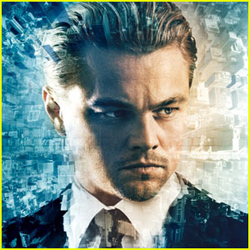
Christopher Nolan’s Inception is extraordinarily creative, brilliantly executed and not even remotely emotionally engaging on any of its multiple dream levels.
From the moment I saw the first trailer, I thought, wow, what an imagination this guy Nolan has. I’ve gotta see this film. From the box office figures, it looks like I wasn’t the only one.
The film has been a huge hit, taking $22 million locally and $227 m in the States in its first 4 weeks in cinemas. And we should be delighted at its success because there is no question that this film – unusually among blockbusters – has a brain.
So intrigued have people been by Nolan’s dream labyrinth that they have been going to see it again and again and furiously debating their interpretations in online forums. By contrast, it’s probably fair to say that after Transformers 2 the internet wasn’t abuzz with, “At the end there, what was Michael Bay really trying to say?”
There’s no question Inception is a cerebral triumph. If you’re into movies as puzzles, you’re going to love it. And if you’re into movies as spectacle, you’re heading into the sort of dream territory where the moisture content is above average. Alas, this isn’t why I go to the movies. I go to be moved and, at this this most basic level, Inception is a massive disappointment.
I believe that the first obligation of the filmmaker, if they care at all about our emotional engagement, is to get us to climb on board with the protagonist. In the midst of all the film’s visual creativity and plotting virtuosity, Nolan overlooked his primary responsibility as a storyteller. I just didn’t connect with Cobb.
Nolan tried to get us to feel empathy for the character by making the hero’s primary motivation be to reunite with his family. Surely we’ve got to care about a character who does that, right? Well, no. We’re just going to see it as a cheap, manipulative plot device unless we believe in the fundamental authenticity of the hero. And I didn’t buy Leo’s character for a second – measured in whatever time continuum you care to nominate.
In the Character session of my 2 day Screenwriting Course on the weekend, I showed the clip from the first act of Thelma & Louise where Thelma is on the phone to Louise. She takes a bit of the chocolate bar and exercises self restraint to put it back in the fridge. She talks a little more and opens the fridge door to take another little bite before, in the spirit of Jenny Craig, she puts the bar back in the fridge again. But after she hangs up from Louise, and she contemplates the prospect of telling her deadshit of a husband that she’s going away for the weekend, she dispenses entirely with any pretence of self control and collects the Mars bar to finish that sucker off. Remind you of anyone?
I also showed the opening scene of Bridget Jones Diary where, on a Friday night, the heroine is in her PJs, drinking alone, watching Frasier and confirming that, no, she really doesn’t have any messages on her answering machine. By the time she’s finished supplying guitar, drums and vocal accompaniment on Eric Carmen’s All By Myself – and before the credits have finished rolling – we are totally on board with the character.
What is it in both these films that lets us connect with the character? It’s the authenticating detail. It’s the writer taking the time to shade the character with some tiny quirk of their behaviour that we can relate to that tells us that this character might be fictional but they are absolutely believable. They are us.
Unfortunately, with Inception, Nolan hasn’t bothered to supply us with these precious little details for Cobb. In fact, I thought James Cameron had underwritten Sam Worthington’s character in Avatar until I saw Leo DiCaprio in Inception. A perpetual crease in your forehead – and a gallon of Brylcreem – do not constitute characterisation.
You might feel it’s unreasonable of me to have this expectation with a film like Inception. But I would say that in a film where we are so unsure of what is real and what isn’t, it was even more important than usual that we have a rock-solid unbreakable belief in the fundamental authenticity of the central character.
After half an hour, I couldn’t give a toss. I turned to my wife, who was similarly disengaged, and gave her a look that said, “If we leave now we can have the Ring Burner and kumera fries at Burgerfuel and still get home in time to catch the end of the Titans-Eels game”. She declined, but only because she’s not a huge NRL fan.
Inception is a massive cinematic achievement and Christopher Nolan must be an extraordinarily talented individual to have pulled it off. Millions of people think that this is exactly what they’d love to get every time they go the multiplex. And good luck to you all. I just happen to think that movies are about much simpler pleasures. Like caring about characters. And being moved.
UPDATE:
Inception received Golden Globe nominations for Best Screenplay, Best Director and Best Film but nothing for Leo DiCaprio. No surprise there. If the actor doesn’t get any characterisation, what can they play?
FURTHER UPDATE:
Why Variety doesn’t think Inception will win Best Film: “Techical virtuosity aside, many viewers profess not to have cared whether Leonardo Di Caprio would get back to his kids or work out the problems with his wife. Best picture winners rarely lack rooting qualities, with “No Country for Old Men” the exception that proves the rule.”
Join the Cracking Yarns mailing list
When are the next Cracking Yarns screenwriting courses
Other screenwriting articles
10 screenwriting insights I wish I’d had 25 years ago
Where I disagree with the Hero’s Journey
A new character-driven Hero’s Journey